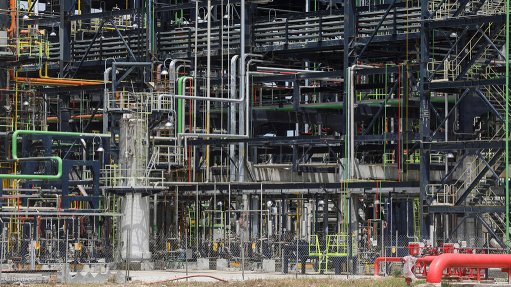Is ESG dead? Why Trump’s exit from SA’s JET is a wake-up call for SA businesses
This article has been supplied.
By: Mila Vicquery - General Manager of Sustainability at Energy Partners
The recent withdrawal of the United States from South Africa’s Just Energy Transition (JET) partnership is another stark reminder that sustainability cannot rest on the shifting sands of political will.
Launched in 2021, the JET is a multi-billion-dollar initiative aimed at helping coal-dependent emerging economies transition towards cleaner energies. America’s withdrawal has reduced South Africa’s total international JET pledges from $13.8 billion to $12.8 billion – a significant setback for the country’s energy transition ambitions.
This decision, however, should not have come as a shock given American president, Donald Trump’s well-documented scepticism towards climate change and ESG (environmental, social and governance) initiatives. His first presidency saw the US withdraw from the Paris Climate Agreement and roll back more than 100 environmental regulations. Now, in Trump’s second term, global ESG momentum is once again under threat – a trend that is expected to intensify.
But is ESG dead? Not quite. Instead, it’s evolving. The era of surface-level sustainability commitments is ending, making way for a more pragmatic, commercially led approach to climate action.
Businesses must lead where politics falters
South Africa’s energy landscape is a case in point. Years of policy uncertainty and an over-reliance on government-led interventions have left the country vulnerable to energy insecurity. The withdrawal of US funding from the JET partnership reinforces what should have been clear from the outset: businesses must drive their own sustainability strategies, independent of fluctuating political agendas.
This shift is already taking shape. Large commercial and industrial energy users are increasingly investing in onsite renewable energy solutions, energy efficiency measures, and alternative financing strategies that align with ESG principles – not for political reasons, but because it makes financial and operational sense. The return on investment from renewable energy is tangible, with solar PV, battery storage, and energy efficiency upgrades delivering long-term cost savings and resilience against grid instability.
The risks of waiting
For businesses, the real risk is inaction. South Africa’s ongoing energy crisis makes it clear that waiting for policy certainty is not an option. In his recent address at the Energy Indaba, Electricity and Energy Minister Dr Kgosientsho Ramokgopa warned that public finance alone will never be sufficient to meet the colossal investment requirements of the climate transition. Businesses that hesitate, risk higher energy costs, supply chain disruptions, and exposure to carbon taxes as global markets tighten regulations.
Instead, forward-thinking businesses are securing their energy future through proactive strategies. Onsite generation, power purchase agreements (PPAs), and sustainability-linked financing are becoming core components of corporate energy strategies. This shift towards decentralised energy solutions is no longer about ticking ESG boxes; it is about ensuring long-term competitiveness and resilience.
The next phase of sustainability
With the narrative around ESG rapidly shifting from regulatory compliance to strategic necessity, the real question is not whether ESG is dead, but whether businesses are ready to embrace sustainability as a driver of long-term growth.
This requires a new mindset: first, turning to face the challenges head-on, seeing the issues as the world sees them rather than solely through the lens of corporate interests. Then, developing a clear point of view on what needs to happen and how businesses can play a role in driving change. Finally, taking action with both vision and practicality, striving to make a tangible difference.
Political shifts in the US, European Union, or even South Africa will continue creating uncertainty in carbon markets, financing, and regulations. However, companies that build their energy strategies around commercial viability and measurable societal and environmental impact, rather than government incentives, will remain ahead of the curve.
The key takeaway is clear: waiting for stable global climate policies is not a strategy, and inaction will only allow disruption to have its way. Industrial and commercial businesses must act now to secure their energy future.
Article Enquiry
Email Article
Save Article
Feedback
To advertise email advertising@creamermedia.co.za or click here
Press Office
Announcements
What's On
Subscribe to improve your user experience...
Option 1 (equivalent of R125 a month):
Receive a weekly copy of Creamer Media's Engineering News & Mining Weekly magazine
(print copy for those in South Africa and e-magazine for those outside of South Africa)
Receive daily email newsletters
Access to full search results
Access archive of magazine back copies
Access to Projects in Progress
Access to ONE Research Report of your choice in PDF format
Option 2 (equivalent of R375 a month):
All benefits from Option 1
PLUS
Access to Creamer Media's Research Channel Africa for ALL Research Reports, in PDF format, on various industrial and mining sectors
including Electricity; Water; Energy Transition; Hydrogen; Roads, Rail and Ports; Coal; Gold; Platinum; Battery Metals; etc.
Already a subscriber?
Forgotten your password?
Receive weekly copy of Creamer Media's Engineering News & Mining Weekly magazine (print copy for those in South Africa and e-magazine for those outside of South Africa)
➕
Recieve daily email newsletters
➕
Access to full search results
➕
Access archive of magazine back copies
➕
Access to Projects in Progress
➕
Access to ONE Research Report of your choice in PDF format
RESEARCH CHANNEL AFRICA
R4500 (equivalent of R375 a month)
SUBSCRIBEAll benefits from Option 1
➕
Access to Creamer Media's Research Channel Africa for ALL Research Reports on various industrial and mining sectors, in PDF format, including on:
Electricity
➕
Water
➕
Energy Transition
➕
Hydrogen
➕
Roads, Rail and Ports
➕
Coal
➕
Gold
➕
Platinum
➕
Battery Metals
➕
etc.
Receive all benefits from Option 1 or Option 2 delivered to numerous people at your company
➕
Multiple User names and Passwords for simultaneous log-ins
➕
Intranet integration access to all in your organisation


















